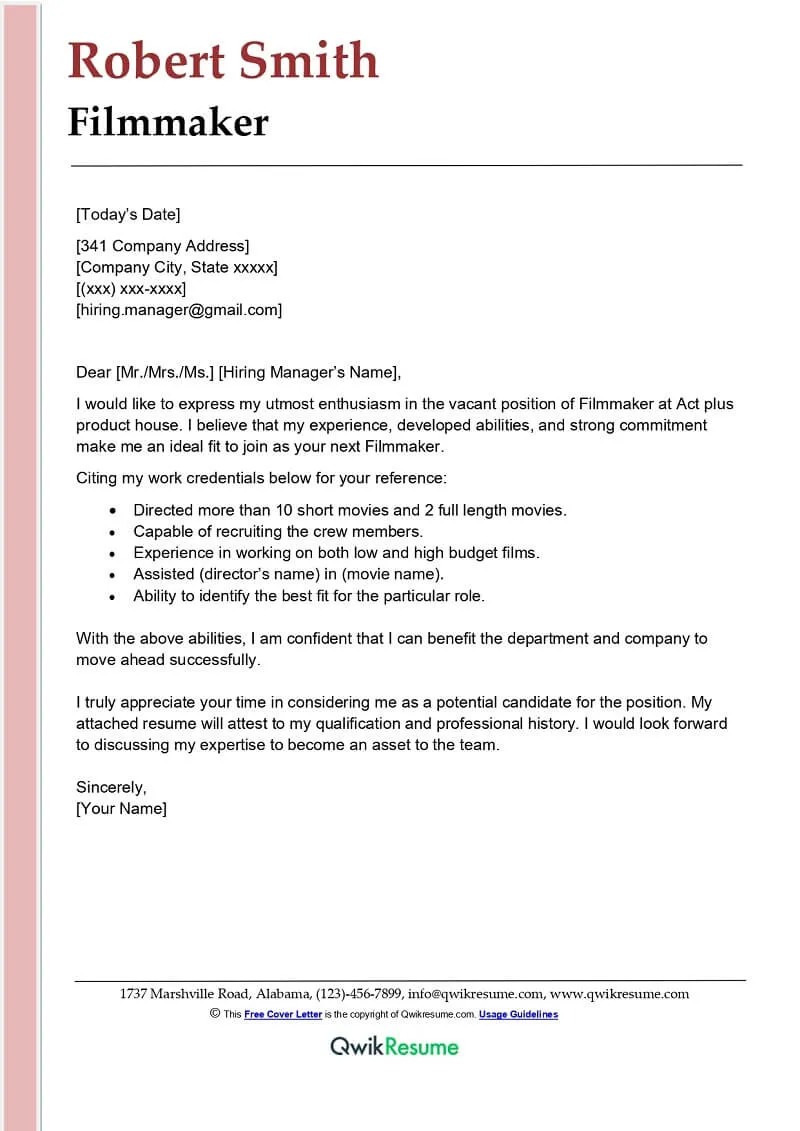What is a Film Festival Cover Letter
A film festival cover letter is more than just a formality; it’s your film’s first impression and your direct line to the festival selection committee. This crucial document accompanies your film submission, providing context, showcasing your film’s unique qualities, and demonstrating your understanding of the festival’s mission. It’s your opportunity to stand out from the crowd and convince the selectors that your film deserves a place on their program. A well-crafted cover letter can significantly increase your chances of acceptance, making it a vital component of any film submission strategy. Therefore, consider the cover letter as a tool, that can get you noticed.
Key Components of a Cover Letter
A compelling cover letter is structured logically and contains specific information that resonates with the festival. Each element contributes to a cohesive narrative, building a case for your film’s inclusion. From your contact details to your film’s unique selling points, every section plays a crucial role in making your letter effective. By including these key components, you not only provide the festival with the necessary information but also showcase your professionalism and attention to detail, which are crucial qualities in the film industry.
Your Contact Information
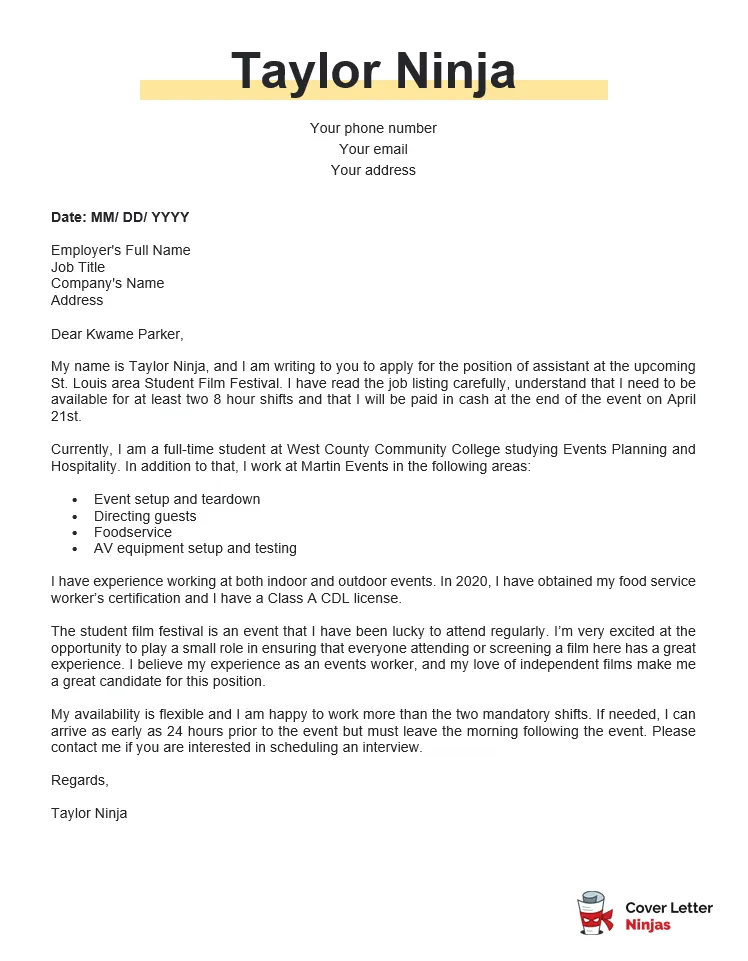
Start with your full name, address, phone number, and email address. This ensures the festival can easily reach you if your film is selected or if they have any questions. Make sure your email address is professional and that your contact details are up to date. This might seem basic, but providing accurate contact information is essential for seamless communication and prevents potential delays in the selection process. Consider including your website or social media handles for the film as well to provide additional information.
Film Title and Basic Details
Clearly state your film’s title, running time, genre, and year of completion. Provide a brief logline (a one-sentence summary) that captures the essence of your film. This gives the committee an immediate understanding of what your film is about. Accuracy is paramount here, and using the correct information ensures there’s no confusion. Double-check the title and all other details against your submission materials to maintain consistency and professionalism. This saves the committee time and provides them with important basic information about your film at a glance.
Why This Film The Hook
This is where you captivate the readers. Begin with a concise, compelling statement that grabs their attention. What makes your film unique? What emotional impact does it have? Highlight what makes your film stand out from the thousands of others submitted. This could be a powerful theme, an innovative approach to storytelling, or a stellar performance. Keep the language engaging and avoid clichés. Make the reader want to see your film by sparking their curiosity and setting the tone for your film.
Highlight Your Film’s Strengths
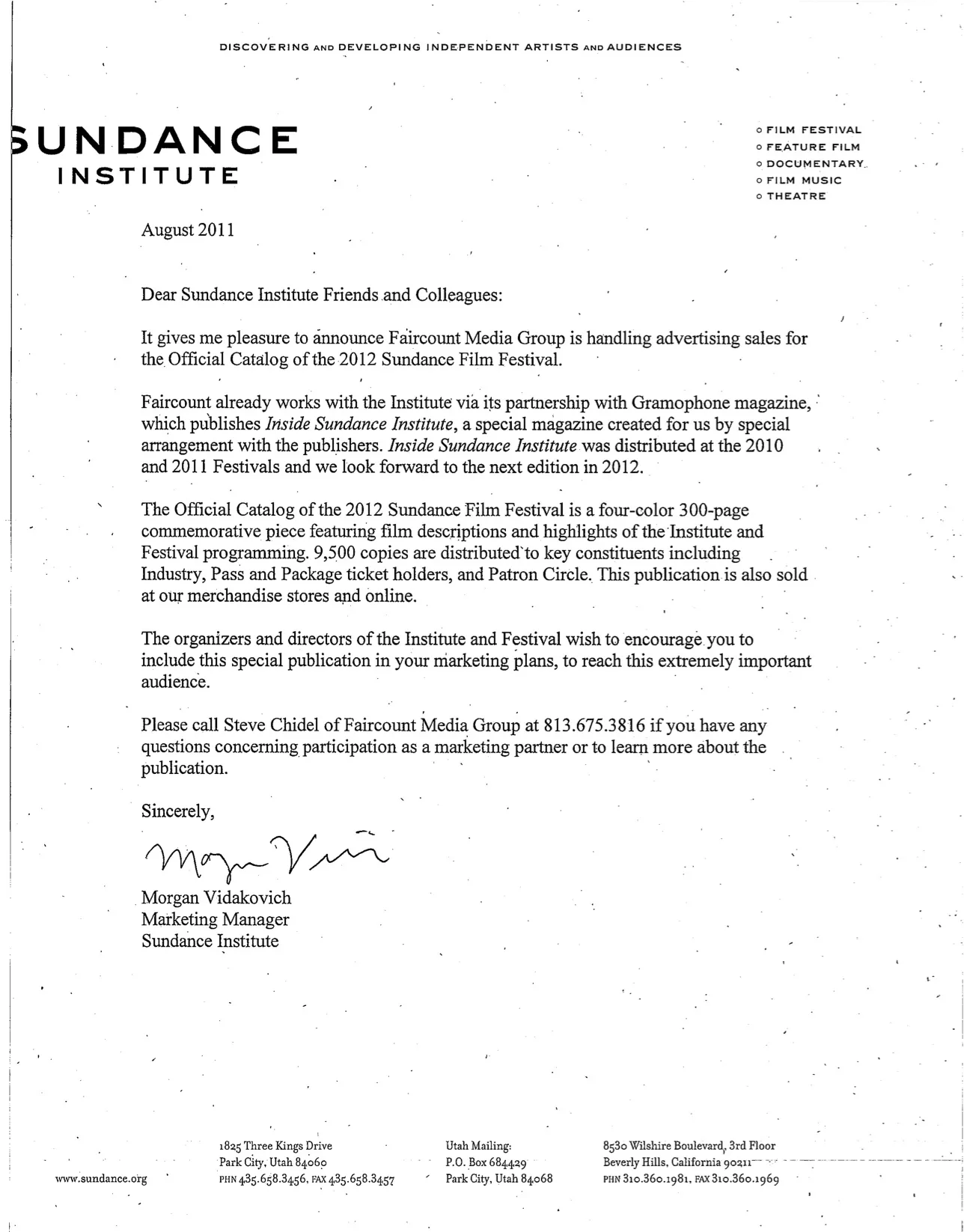
Emphasize the key aspects of your film that align with the festival’s values. Does your film feature groundbreaking cinematography, outstanding performances, or a thought-provoking narrative? Briefly discuss these elements and how they contribute to the overall impact. Be specific and provide concrete examples. If your film has won any awards or received positive reviews, mention them here. Make sure you select the most impressive and relevant strengths. This provides the selection committee with reasons to consider your work seriously and makes your film more memorable.
Festival Relevance
Explain why your film is a good fit for this specific festival. Research the festival’s mission, past selections, and audience profile. Highlight any thematic connections between your film and the festival’s focus. Do you share similar values? Does your film address topics that align with the festival’s aims? By demonstrating that you understand and appreciate the festival, you signal that you are genuinely interested in being a part of their event. This personalizes your submission and greatly increases your chances of being selected.
Filmmaker’s Background
Provide a brief overview of your filmmaking background. Mention any relevant experience, previous films, or awards. If you’re a new filmmaker, focus on your passion, unique perspective, and the team behind the project. If you are a more experienced filmmaker, highlight your achievements that demonstrate your professionalism and credibility. Keep this section concise and relevant, focusing on elements that validate your film’s quality and your potential as a filmmaker. This is your opportunity to give the festival insight into the talent and skill behind the movie.
Professional Closing
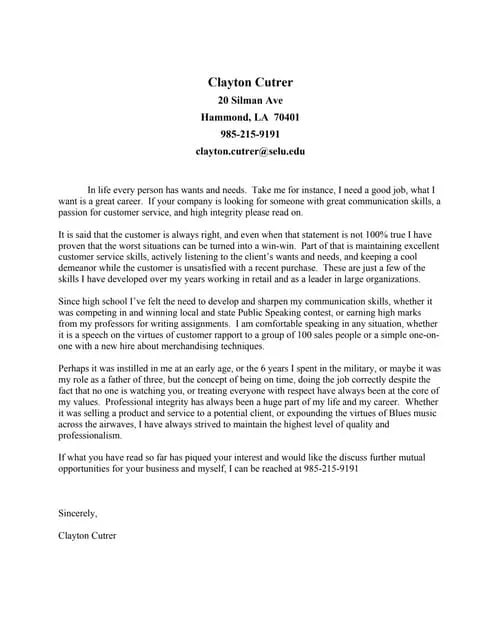
Thank the selection committee for their time and consideration. Express your enthusiasm for the festival and your hope to participate. Include a call to action, such as a statement that you look forward to hearing from them. Keep your tone professional and positive. Ensure that your final statement reflects both respect and sincere appreciation. A thoughtful closing statement shows respect for the festival’s work and expresses your genuine interest in being selected, leaving a positive lasting impression on the committee.
Formatting Your Cover Letter
The format of your cover letter is just as important as its content. A well-formatted letter is easy to read and demonstrates your professionalism. In addition, it can make your cover letter more approachable, making it easier for the committee to digest the contents. Pay close attention to all the details.
Font and Style
Use a clear, readable font like Times New Roman, Arial, or Helvetica. Maintain a consistent font size (typically 11 or 12 points) throughout the letter. Choose a professional style that reflects the seriousness of your submission. Avoid using overly ornate or casual fonts, as they can detract from the message. Good formatting enhances the readability and makes the cover letter look professional.
Length Considerations
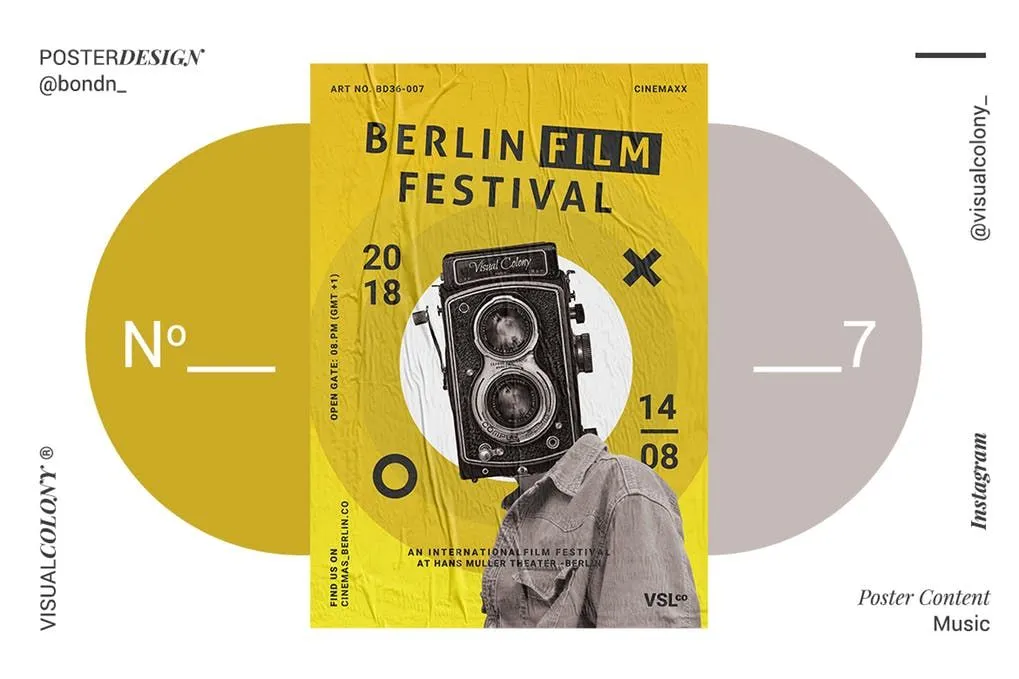
Keep your cover letter concise, ideally one page. Festivals receive a large volume of submissions. A shorter letter allows the committee to quickly grasp the essence of your film and your intentions. Focus on the most important information and avoid unnecessary details. Every word should contribute to your central message and contribute to making a positive impression. Brevity shows that you respect their time and makes your letter more engaging.
Proofreading and Editing
Carefully proofread your cover letter for any typos, grammatical errors, or inconsistencies. These errors can undermine your credibility and reflect poorly on your professionalism. Use spell-check and grammar-check tools, but also review the letter yourself, as automated tools can sometimes miss subtle errors. Having someone else review your letter is also a great idea. Attention to detail in proofreading reflects your commitment to producing high-quality work.
Examples and Templates
Utilizing templates and examples is an effective way to understand the structure and style of a cover letter. However, remember to personalize them to your specific project and the requirements of each festival. Understanding how to adapt templates is as important as finding them.
Where to Find Cover Letter Templates
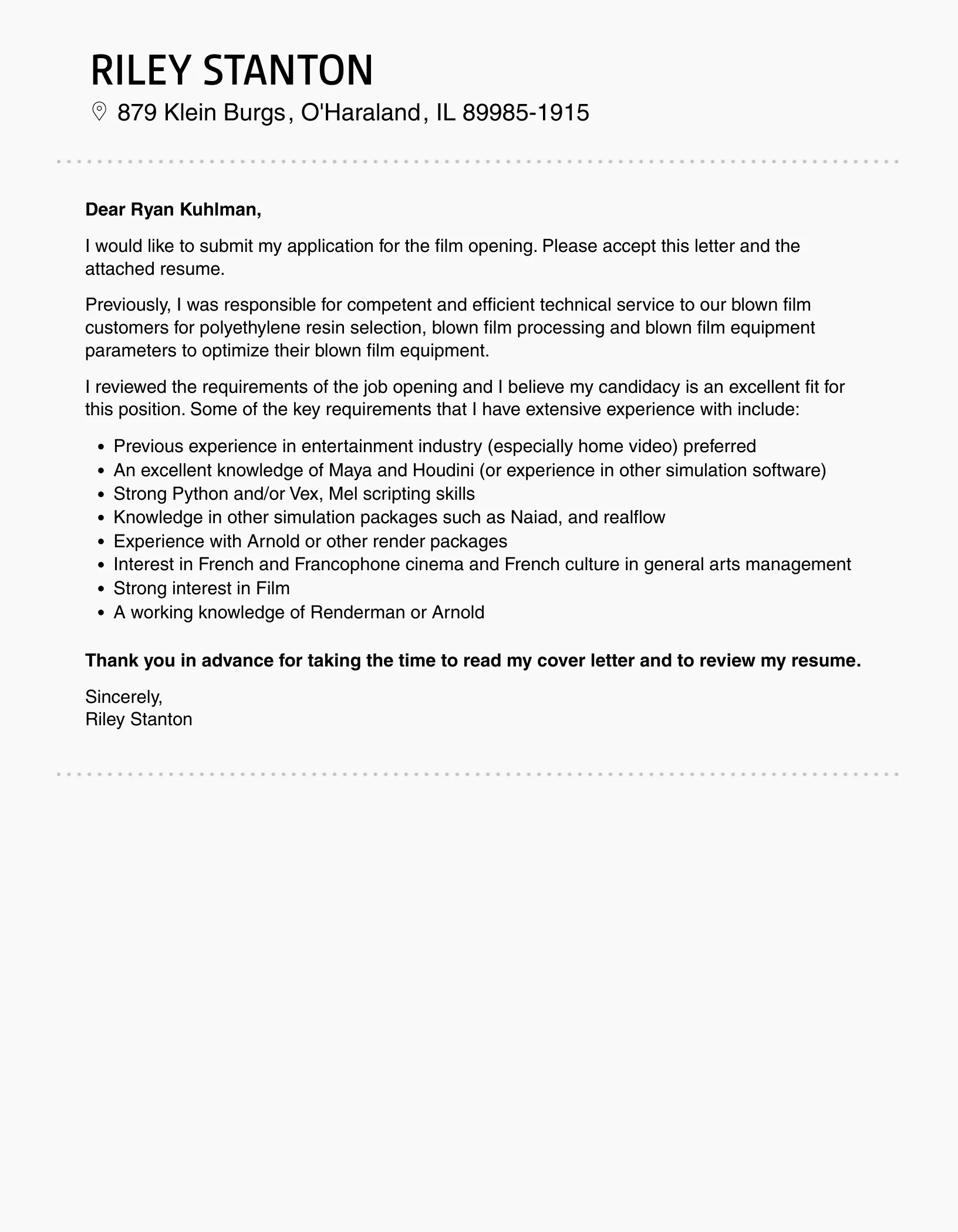
Many online resources offer cover letter templates specifically designed for film submissions. Websites like FilmFreeway and IndieFilmHustle often provide examples and templates. You can also search for general cover letter templates and adapt them to fit your needs. When using a template, ensure it is current and aligned with industry standards. It’s also a great idea to customize your cover letter.
Adapting Templates to Your Film
While templates offer a great starting point, it’s essential to customize them to reflect your film’s unique aspects and the festival’s specific requirements. Tailor the language to match your film’s tone and genre. Personalize the content to highlight your film’s strengths and why it’s a good fit for the festival. Never submit a generic letter. The more personalized your letter, the better the chance of connecting with the selection committee. This effort will significantly increase your chances.
Common Mistakes to Avoid
Avoiding common pitfalls can significantly improve your cover letter’s effectiveness. Errors can detract from your submission. Pay close attention to all the details to increase your chances of success.
Typos and Grammatical Errors
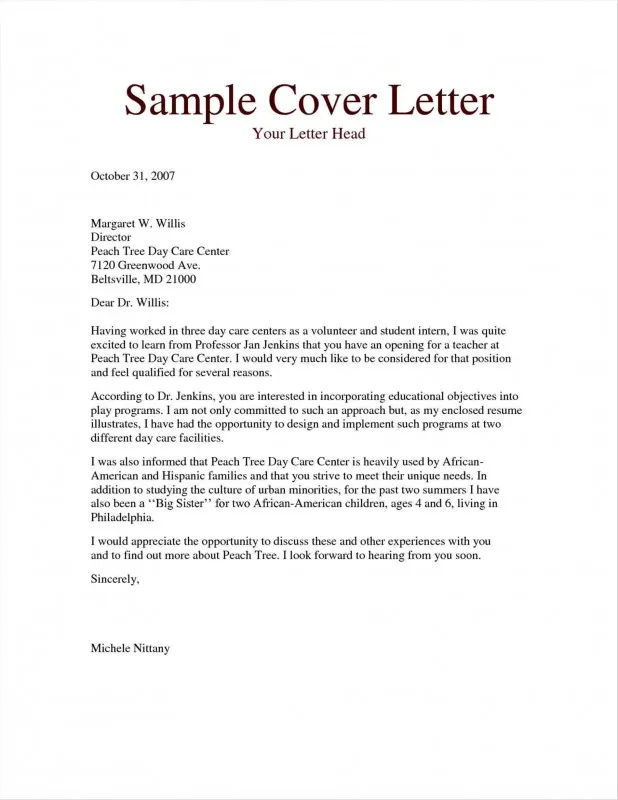
Typos and grammatical errors can undermine your credibility. They can also give the impression that you haven’t taken the time to properly prepare your submission. Always proofread your cover letter multiple times. Use spell-check and grammar-check tools, but don’t rely on them completely. Have someone else review your letter to catch any errors you might have missed. A polished cover letter demonstrates your professionalism and attention to detail, which can make a great first impression.
Generic Content
Avoid using generic language that could apply to any film. Tailor your cover letter to your film’s specific qualities. The selection committee can easily spot generic content. Demonstrate that you have a deep understanding of your film’s unique value. Highlight what makes your film special and why it deserves to be seen at the festival. Be specific and enthusiastic. The more personalized and authentic your cover letter, the better the impression you will make.
Ignoring Festival Guidelines
Always read and adhere to the festival’s submission guidelines. Many festivals have specific requirements for cover letters. Failing to follow these guidelines can lead to your submission being rejected. Pay close attention to details such as the required length, formatting, and content. By showing that you respect the festival’s guidelines, you demonstrate professionalism and attention to detail. Failing to follow the guidelines is a common mistake that can be easily avoided, ensuring your submission receives the proper consideration.
Conclusion
Crafting a compelling cover letter for a film festival is a critical step in the submission process. By following these guidelines, you can create a cover letter that will grab the attention of the selection committee and increase your chances of success. A well-written cover letter provides essential information and showcases your film’s unique qualities, demonstrating why it’s the perfect fit for the festival. Remember to be professional, specific, and enthusiastic. Good luck with your film submissions!
